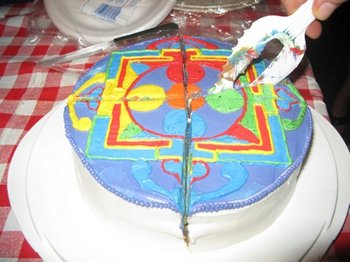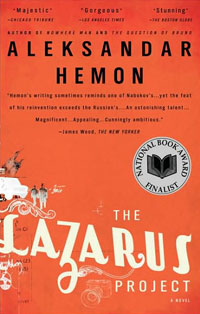What would Sid do?
Before Siddhartha Gautama attained enlightenment at age 35 he was a
confused twenty and thirty-something looking to learn how to live a
spiritual life. He had an overbearing dad, expectations for what he was
supposed to do
with his life, drinks were flowing, lutes were playing, and the
women were all about him. Some called him L.L. Cool S. I imagine
close friends just referred to him as Sid.
Many people look to Siddhartha as an example of someone who attained nirvana, a buddha. But here we look at a younger Sid
as a confused guy struggling with his daily life. What would he do as a
young person trying to find love, cheap drinks, and fun in a city like
New York? How would he combine Buddhism and dating? We all make mistakes on our spiritual journey; here is where
they’re discussed.
Each week I’ll take on a new question and
give some advice based on what I think Sid, a confused guy working on
his spiritual life in a world of major distraction, would do. Because
let’s face it, you and I are Sid.
Have a question for this weekly column? E-mail it here and I’ll probably get to it!
—————————————————————————————————————————————
Q: i’m
trying to become a buddhist but i’m struggling with being gay. is there
any restrictions to being gay and being a buddhist, and if there is
please tell me. thanks so much for answering my question! – Michael
First and straightforwardly Michael, no. There are no restrictions on being gay and being Buddhist. Now let’s get complicated and in-depth on the matter.
When Sid became the Buddha he taught extensively. Like, a lot a lot. Yet somehow in the midst of all of his teachings nothing shows up in the Pali Cannon about homosexuality. It’s as if he didn’t even think to mention it which is odd considering it was present in India at the time. My interpretation here (and I’m not alone in this) is that by not making specific classifications in his teachings we can infer that the Buddha meant to lay out the same rules for homosexual behavior that apply to heterosexual behavior.
So let’s explore these rules, specifically the third of the five precepts: k?mesu micch?c?ra verama?? sikkh?pada? sam?diy?mi. This is the precept saying that one should to abstain from sexual misconduct. So what is considered sexual misconduct? The bottom line on the issue is that Sid set out to pursue a life of spiritual awakening that ended with the idea that above all, we should do no harm to others or to ourselves. Yet anytime you have sex with someone you create a certain amount of ramifications, some of which can include hurt feelings, disease, or awkward party run-ins. In other words, harm.
Some scholars have suggested that in a strict interpretation we would all need to remain celibate in order to insure that no one gets hurt. Anything other than that would be sexual misconduct. Looser interpretations have implied that so long as you practice safe and consensual sex you are not breaking the precept. My sense of appropriate sexual conduct for heterosexuals and homosexuals alike tends towards the looser have-sex-and-try-hard-not-to-cause-harm-and-please-use-a-condom attitude. What’s your interpretation?
It’s worth noting that some Buddhists disagree with the whole what’s good for the hetero is good for the homo approach. The Dalai Lama for example. Yes he’s the spokesperson for Tibetans and the reincarnation of the bodhisattva of compassion but the guy really put his foot in his mouth at a press conference back in June, 1997. He said, “From a Buddhist point of view [lesbian and gay sex]… is generally considered sexual misconduct.” Anyone who read last week’s post knows I’m a fan of His Holiness but wow. Just wow.
The Dalai Lama later clarified that he was quoting tradition on how oral, anal, and manual sex are considered taboo. That does not mean it is just homosexuals who are being condemned here, just anyone who likes any form of spice in the bedroom. Also, this implies that homosexual relationships are okay, it’s just the acts of the night that are not.
I for one am not a fan of the monastic Tibetan Buddhist party line (assuming that is what His Holiness is representing here). I tend more towards what buddhanet said on the matter:
“As the Buddha seems
to have had a profound understanding of human nature and have
been remarkably free from prejudice, and as there is not evidence
that homosexuals are any more libidinous or that they have any
more difficulties in maintaining celibacy than heterosexuals,
it seems unlikely that the Buddha would exclude homosexuals per
se…”
In other words people are people and I doubt that the Buddha would have wanted to prevent anyone from pursuing enlightenment because of their sexual preference.
As we have been discussing on this blog for some time Buddhism has
spread throughout the world and as it encountered new cultures it continued to
adapt to meet societal norms. This has led to some aspects of Buddhism
being interpreted strictly in one locale (the Dalai Lama’s monastery for example) while quite loosely in
another (your local meditation center perhaps). Buddhism is not the only religious tradition that has such a range of interpretation.
In conclusion I’m sure Sid would be fine with you being gay. He pursued a life that teaches us that we need to look at our actions and determine whether they are helpful, based on
good intentions, and free from harm or if we’re just being a douchebag. Qualities such as mindfulness and compassion can be practiced by us all, regardless of sexual preference, race, ethnic background, income, or what have you. So welcome to Buddhism Michael, it’s great to have you as a fellow practitioner on this path.

